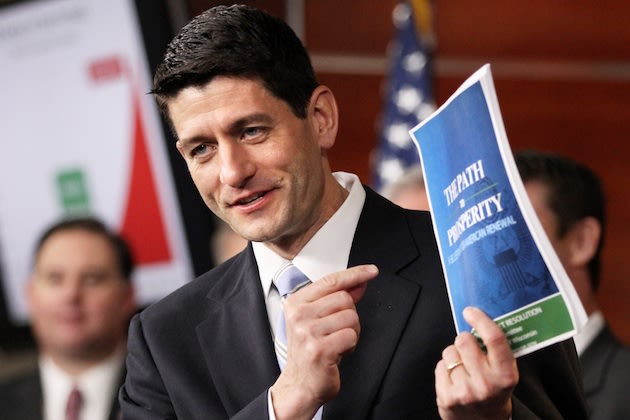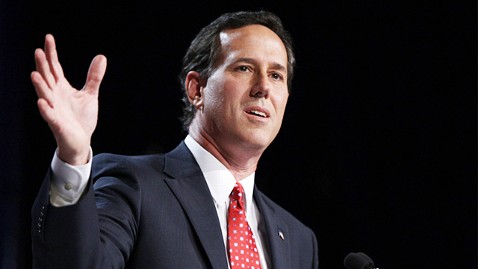By Alison Vekshin
The bankruptcy that Stockton (3654MF), California, resisted for three years is now at its doorstep, spurred by the weight of retiree costs, the housing bust and accounting blunders that drained the city’s coffers.
Stockton, 80 miles (130 kilometers) east of San Francisco, rode the boom-and-bust cycle of the 2000s with a surge in new- home construction that attracted buyers seeking an affordable alternative to Bay Area real estate. Then a crash came, as homeowners faced a wave of foreclosures that sapped the city’s tax-revenue gains.
The city born in the gold rush has struggled for decades, relying on revenue from farming and shipping at its river port. Meanwhile it granted employees some of the state’s most generous benefits, and now has 94 retirees with pensions of at least $100,000 a year -- more than twice as many as some comparably- sized California cities. It has a history of ethnic tension and the notoriety of a 1989 schoolyard shooting in which five children were gunned down.
“We’re really struggling,” City Council member Dale Fritchen, 51, said by telephone Feb. 28. “There were horrible decisions made. City leaders spent money faster than it was coming in, thinking that the gravy train would never go away.”
This week, Stockton moved closer to bankruptcy with a City Council decision to preserve cash by defaulting on $2 million in bond payments. It also voted to begin a mediation process required under state law prior to seeking court protection. The city said its goal is to avoid bankruptcy. If it files, it would be the most populous U.S. city to do so.
Bankruptcy Code
From California to Rhode Island, cities are using the federal bankruptcy code to get out from under billions of dollars in obligations they can’t afford. Central Falls, Rhode Island, filed for protection in August after failing to win concessions from its unions. Jefferson County, Alabama, turned in the biggest municipal bankruptcy in U.S. history last November, with $4.2 billion in debt. Vallejo, California, sought Chapter 9 reorganization in 2008.
Stockton’s unemployment rate soared to 17.3 percent in 2010, the country’s sixth-highest, from 7 percent in 2000, according to the California Employment Development Department. The foreclosure rate in the Stockton metropolitan area was the second-highest in the U.S. last year, after Las Vegas, according to Irvine, California-based RealtyTrac Inc. Violent crime in the Stockton area was the eighth-highest rate in the nation in 2010, according to FBI data.
Gold Rush
Stockton was founded in 1849 as a supply center for people rushing to work in mining, a year after gold was discovered on the American River east of Sacramento. Early settlers flocked from eastern states and from Asia, Europe and Africa.
Later, shipbuilding became a major industry in Stockton, with its deep-water port on the San Joaquin River. Agriculture surged as the region supplied asparagus, cherries, tomatoes, walnuts and almonds.
In the 1990s, city officials doled out generous retirement health benefits without ensuring the city could afford the payments over time, City Manager Bob Deis said at a Feb. 24 news conference. A worker employed as little as a month could qualify for city-paid retirement health care for the retiree and his or her spouse for life, Deis said.
“It was not a Cadillac plan,” Vice Mayor Kathy Miller said in a telephone interview. “It’s a Lamborghini plan. No one in the private sector had anything like that.”
Among expenses the city can no longer afford is a $417 million unfunded retiree health-care liability.
‘Nobody Asked’
“The problem is, nobody asked the question: ‘How do you fund it?’ And consequently there was no money set aside to fund those commitments,” Deis said. “It was an unsound decision and it has similarities to a Ponzi scheme.”
In the 2000s, as housing prices soared in San Francisco and Silicon Valley, buyers from San Jose to Oakland seeking affordable alternatives flocked to Stockton, where starter homes cost around $400,000. Single-family home construction, which had averaged 2,500 units a year from 1991 to 1997, tripled to 7,500 annually from 2003 and 2005, according to Robert Denk, senior economist at the Washington-based National Association of Home Builders.
The city’s population grew 20 percent in a decade, to 291,707 in 2010 from 243,771 in 2000, driven by a surge in Hispanics who identify themselves as Mexican, according to U.S. Census Bureau data. That ethnic group jumped 56 percent in the period, to 104,172 from 66,900, while the black population grew 30 percent and the Asian population rose 29 percent, Census figures show.
‘Boom Time’
“Money was just pouring into the city coffers for development fees and permits,” Miller said. “Property taxes were going through the roof. It was boom-time.”
Pay and benefit packages continued to swell. In 2005, the city completed a new ballpark and arena on the waterfront using bond funds.
“There was an unspoken policy that to keep the unions from complaining about the amount of money being spent on projects, the easiest way to do that was to continue sweetening their compensation packages,” Miller said.
Among those measures were automatic salary increases regardless of whether the city had the revenue to support them. The contract with the fire union required the city to compare its pay with that of 16 cities including Huntington Beach, Anaheim and Torrance. Stockton firefighters’ salaries were required to rank fifth-highest, according to the city’s May 2011 emergency declaration document.
$100,000 Pensions
Stockton retirees also fared well. The 94 with pensions of more than $100,000 compares with 38 in Bakersfield, which has 347,000 residents, and 35 in Chula Vista, with a population of 244,000, according to data compiled from state pension records by the California Foundation for Fiscal Responsibility, a Citrus Heights-based group that advocates pension reform.
An epidemic of foreclosures reached Stockton in 2007, as the recession left thousands of homeowners unable to afford their mortgages. Home construction collapsed and housing prices plummeted.
Revenue dwindled to an estimated $161.8 million in fiscal 2012 from $203.1 million in fiscal 2009. The city fired 25 percent of its workforce.
In Stockton’s San Joaquin County, assessed property values tumbled almost 11 percent in fiscal 2010, followed by 3.9 percent in 2011 and 4 percent in the current year, according to the county’s website.
‘Drastic Decisions’
“In the beginning, when this whole economic bubble burst, everyone had the attitude, ‘We’ll just avoid making drastic decisions and in a year or two things will be back to normal,’” Miller said.
The base pay for a Stockton police officer can be as much as $76,860, while a sergeant’s can reach $90,836, according to data provided by the city. In 2010, 87 percent of police officers got additional pay that added 8.7 percent for a canine handler, 4.3 percent for SWAT and 5 percent in “longevity pay” at six years of service. All are included in the calculation of retirement benefits.
“We are now the fifth-lowest paid police organization in the county where we handle the majority of the calls,” Kathryn Nance, a Stockton Police Officers’ Association board member, said in a telephone interview.
By 2009, city officials began considering bankruptcy.
Bankruptcy Protection
Fritchen, the council member, asked the city attorney’s office to lay out the pros and cons of bankruptcy protection at a budget committee meeting.
A year later, in May 2010, the city declared a fiscal emergency to deal with a $23 million deficit. The declaration allowed the city to make changes to existing labor contracts.
Crime escalated as the police force was reduced by about 27 percent to 324 sworn officers from 441, according to Pete Smith, a police spokesman. There were a record 58 homicides last year, most involving gang violence, Smith said.
“We’re losing our grip on some of the more troubled neighborhoods and don’t have the ability to police the city as proactively as we did,” Smith said.
In the spring of 2011, Deis met with about 15 police employees and budget officials to seek concessions from the union.
‘Breaking Our Contract’
“He said if we continue to fight on them breaking our contract, then he is going to push the reset button and go bankrupt and we will all lose,” Steve Leonesio, president of the police union, said in a telephone interview. The union is suing the city, challenging its authority to reduce benefits under the emergency declaration.
Last year, city officials uncovered bookkeeping errors requiring $15 million in budget cuts that “will have the effect of stripping Stockton’s cupboards bare,” Deis said.
The mistakes included double-counting of $500,000 in parking-ticket revenues and overstating the city’s available balance by an estimated $2.8 million.
On Feb. 24, Deis walked into a news conference at City Hall and announced that the errors and the recession represent “the knockout blow” for the city’s finances. He recommended the city invoke the state bankruptcy law.
“We see no viable alternative,” he said.





















